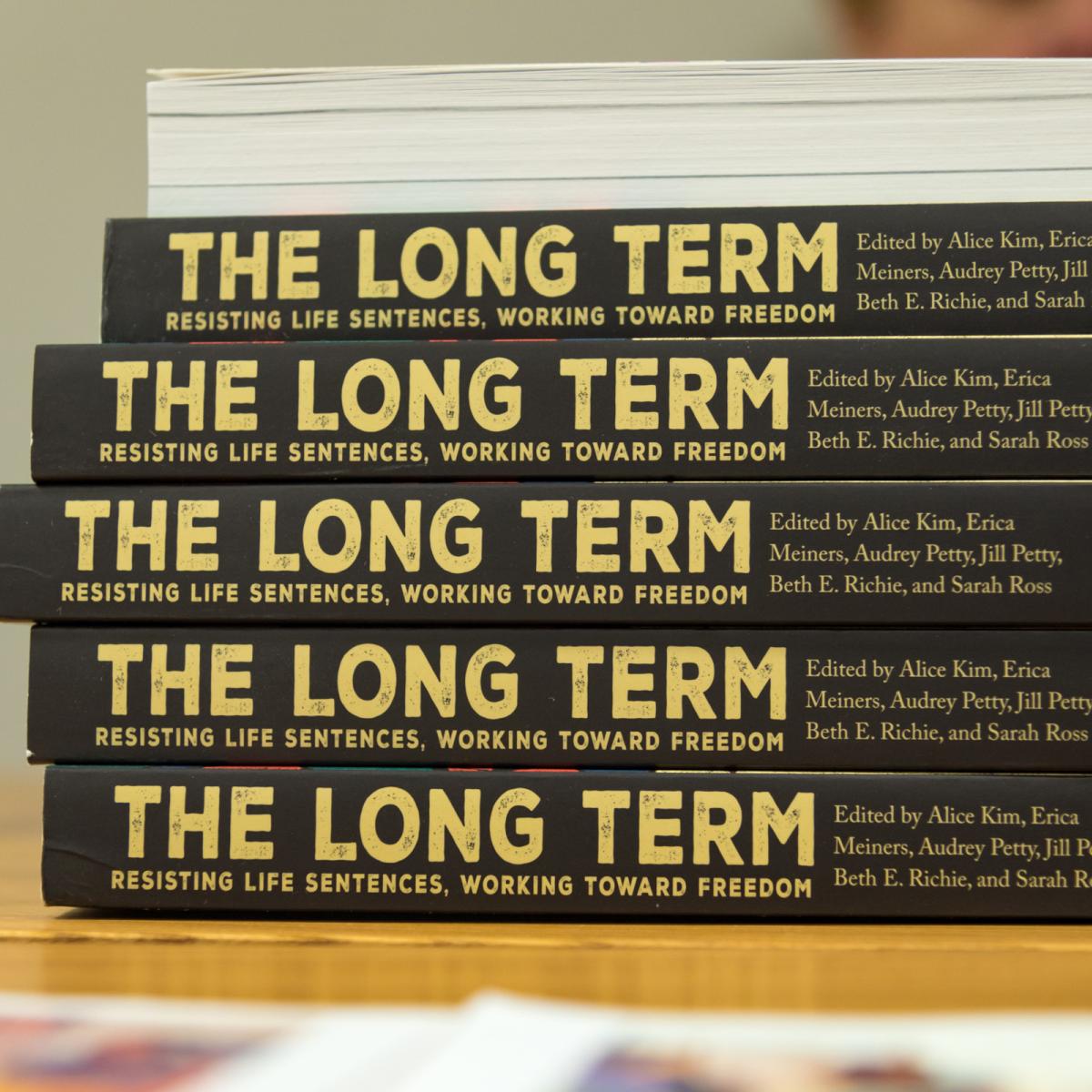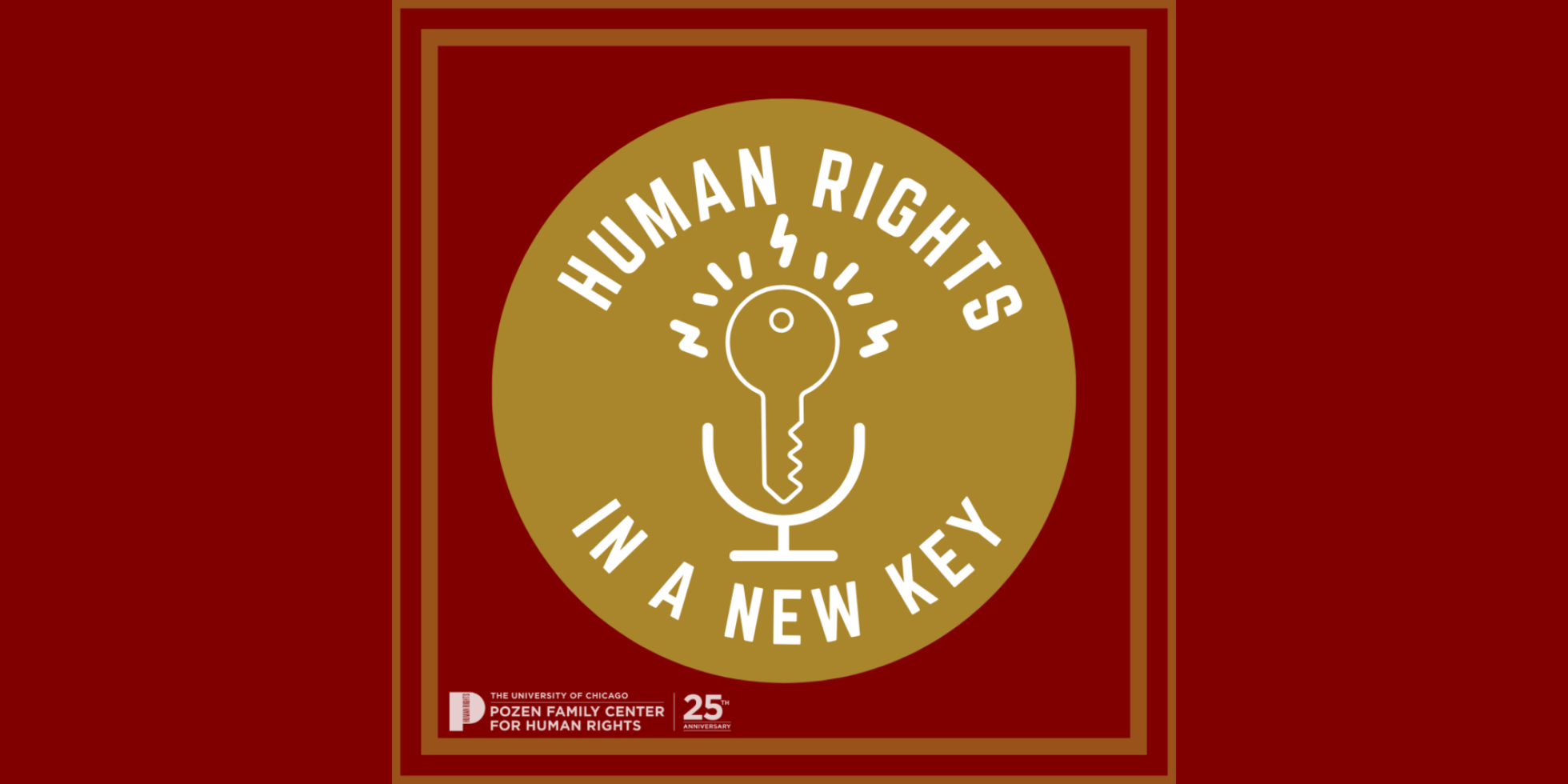Our podcast centers student perspectives and voices in conversation with activists, academics, and other human rights experts. UChicago student co-hosts, editors, and reviewers showcase a breadth of human rights issues, tying them together through lived experience and personal stories of our guests.
Listen on all streaming platforms: Spotify, iHeartRadio, etc.
Interested in getting involved in the podcast?
Contact us if you want to get involved with the next season of Human Rights in a New Key. This could mean working on a single episode, a series of episodes, or joining a podcast production team.
Season 1
Introducing the Hosts
Indigeneity in Academia
Archiving Incarceration and Prisoner Unrest
Entangling Human and Animal Rights in US Industrial Farms
Activism and China’s Techno-totalitarianism
Baháʼí Solidarity in the Face of State-led Persecution
Re-integrating Ex-militants, Postwar Colombia
Meet the Creators

Manaeha Rao, Co-Host
Manaeha Rao, AB’23, (she/they) studied Neuroscience and HIPS (History and Philosophy of Science). Originally from Los Angeles, Manaeha is the Director of Digital Growth of Nafs, a group trying to destigmatize mental illness in the American Muslim community. She also hosted Human Variable, a science policy podcast by UChicago’s Science Policy Group. She published a paper on the disparities in smoking and tobacco usage in Asian Americans, disaggregated into ethnic groups for the first time. She has been a potter for three years, making countless bowls, cups, and planters for her friends and family. Manaeha intends to go to law school and use her degree to help in dismantling systemic health disparities.
Matt Furlong, Co-Host
Matthew Furlong, PhD’21, (he/him) is a Social Science Teaching Fellow at the Pozen Center. Why has public housing in Latin America radically expanded during the past half-century, while public housing in North Atlantic nations like the U.S. has fallen radically from favor? This unanswered geopolitical question is at the heart of Matthew's research agenda. As an urban anthropologist whose concerns extend into land struggle history, space-making in Mexican social movements, and the anthropology of the state, Matthew's research draws these concerns together through urban planning archives and ethnographic fieldwork amongst northern Mexican construction companies and residents. Set in the shadow of Latin America's largest national mass housing industry, Matthew's book manuscript, A Politics of Invasion: Housing Struggles in the Twilight of a Mexican Infrastructure-Building State (in preparation), explores how public housing has served both to foreclose and project the power of indigenous/peasant land struggle movements in Mexico, while projecting competing images of Mexico--to domestic and global audiences--as neoliberal or socialist, respectively. Matthew has taught Latin American studies as a lecturer at Roosevelt University and served as an advisor to Espacio Migrante, a Tijuana-based migrant autonomy-oriented NGO. At the University of Chicago, he has also taught courses on de/colonization in the Americas, social theory, and the relationship between anthropology and human rights.
Sherry Guo, Audio Editor
Sherry Guo (she/her) is an artist and currently a student at the University of Chicago, majoring in Media Arts and Design and minoring in Visual Arts and Anthropology. She is interested in multimedia art that invites a multi-sensory engagement with the body, especially sound-image relationships. She is particularly drawn to the immersive quality and emotional capacity that sound and audio mediums have for storytelling. This has led her to the podcast world thus far, but she hopes to expand her experience to explore film and TV sound design as well as installation and exhibition work. She is the editor of The Newest Olympian, a Percy Jackson podcast, and the editor and a producer for season 4 of Meddling Adults.

